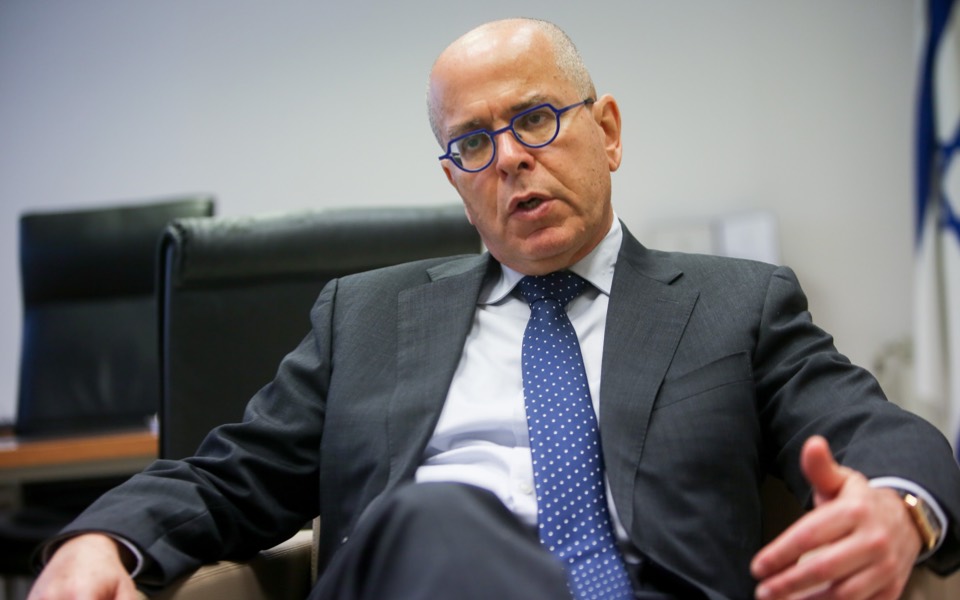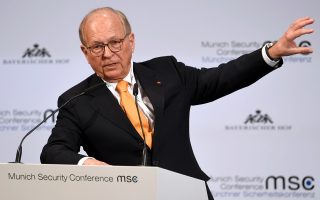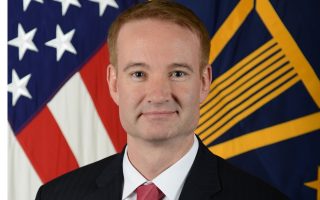Israel seeking deeper cooperation with Greece, Ambassador Yossi Amrani says

In an interview with Kathimerini, Israeli Ambassador to Greece Yossi Amrani made it clear that he sees even closer cooperation in every area. Our conversation marked the 30th anniversary since Greece, under the government of Konstantinos Mitsotakis, recognized the State of Israel on May 21, 1990, and full diplomatic relations were established between the two countries.
Amrani notes that intense negotiations are under way in order to facilitate travel between Greece and Israel, saying that both countries have been successful in their response to the coronavirus pandemic but do not want to take any unnecessary risks.
The Israeli ambassador also refers to the need for closer defense cooperation, noting that the recent lease by Athens of Israeli unmanned aerial vehicles is one of several such programs that are in the pipeline. He also expresses hope for the privatization of Hellenic Vehicle Industry (ELVO), while stressing that Israel is ready for closer cooperation in the defense industry.
We have come a long way since 1990. What does the future hold?
I think that we can look back on the last 30 years with a certain sense of achievement and pride at what has been accomplished. I think that now we can identify the challenges and brainstorm together on how the stability of the region, and our national interests are better served through cooperation. And there is definitely the immediate vicinity of the Eastern Mediterranean, which is the Israeli neighborhood and is part of Greece’s environment or geographic setting, and also Europe. Europe is interesting for Israel: Our trade goes to Europe, our cultural, academic and scientific relations are mostly with Europe, and we need to develop a strategy where we leverage our assets for the improvement of the national strength of each country.
Are there any milestones in this 30-year relationship that stand out for you?
I cannot put my finger on one moment because there are many: the chemistry between the people on the street, the Hebrew you hear in Ermou Street, the love of Israelis for Greek music, food and culture. I think that the entire atmosphere is very positive. On the political level, which is a symbol of all this, I think the moment was the first meeting between former prime minister George Papandreou and Prime Minister Benjamin Netanyahu. Then there is the chemistry between Israel and Greece during the Alexis Tsipras government and, of course, the trilateral summit on January 2. As someone who follows Israeli-Greek relations I have witnessed a different mindset. Definitely in this country there is a different mindset, that looks at Israel as a partner, as an ally, as a model of economic and scientific development. And I look at my colleagues in Israel and how they appreciate Greece as a model of cooperation, with the openness and the warmth of the Greek people towards Israelis.
What about the coronavirus crisis? Do you see a “bridge” being developed between Greece and Israel allowing travel between the two countries?
We have enjoyed an open-door policy and an exchange of views on all levels, from the prime ministers and health ministers, to others. Greece and Israel are success stories in combating and containing the coronavirus, and the numbers prove this. Now, in resuming flight connections and tourism we will have to abide by the new realities imposed upon us in the light of the coronavirus. This would call for a certain health protocol. We started exchanges last week which cover tourism and health professionals, aviation and airport authorities, and diplomats, to come up with a model which will allow us to open the gates. We will take certain experimental steps. It’s not that tomorrow we will have open tourism season in Greece or in Israel; we have to keep to a certain number to contain any chance of a future explosion of the virus again. We were successful, but this does not mean that we will take unnecessary risks. The effort is not yet concluded but we are fully invested and committed.
Would you say that there is less anti-Semitism in Greece today than in the past?
I welcome every effort to educate public opinion, and I definitely welcome the first decision of the government of Prime Minister Kyriakos Mitsotakis to adopt the International Holocaust Remembrance Association’s definition for anti-Semitism and, of course, the commemoration of International Holocaust Day. The visit of the prime minister and many of the government’s ministers to Auschwitz was significant. I think that here in Athens and everywhere in the country, the commemorations are very moving. This is an important step, but it will never be enough. We need to fight against every expression of ignorance I would say – prejudice, bigotry and xenophobia.
In terms of strategic cooperation between Greece and Israel, what are the next steps toward closer Greek-Israeli cooperation, given the restrictions imposed by the pandemic?
After a year-plus of political instability we now have a new government. This government’s first priority is fighting the economic spillover of the coronavirus. I do hope that in the context of the 30th anniversary we will re-establish direct contacts between the political leadership of the two countries – especially the ministers of defense, foreign affairs, economy and energy – to move ahead in strengthening the bilateral relationship for the regional as well as the bilateral interest. My emphasis would be on restarting the exchanges between the two leaderships and the two governments and reaching out and enhancing the trilateral cooperation and paying attention to the regional aspect of our cooperation.
That means alignment on issues that are mainly of a regional nature.
I do think that Greece has a role in the Mediterranean, a historic role. The Greek influence goes back centuries, if not millennia. And Greece has developed very close relationships with neighboring moderate Arab countries. We need to think about how we expand this outreach to a regional cooperation in line with what has been formed earlier this year in Cairo, the East Mediterranean Gas Forum. The forum brings many countries under the same umbrella, countries that usually do not have diplomatic relationships. We cooperate with the Palestinians and other countries in this forum. Maybe Greece can lead in establishing such regional forums with an inclusive, not exclusive, approach. If we can include countries in those regional frameworks, we can create a new reality in the region, one of cooperation and not of further hostility and acrimony.
Turkey is the obvious elephant in the room and an important regional actor. Can it be included in such frameworks?
I do not refer to any country as an elephant. Every country is respectable and deserves respect and honor, but we would like to create a forum of cooperation. And we need to ensure that that cooperation succeeds. Any country that can play a positive constructive role should be included, in our point of view. We do not want to turn the regional cooperation frameworks into another forum for trading accusations and resulting in political bickering.
There was an agreement between Athens and Jerusalem a few days ago for the leasing of UAVs. Do you see cooperation in defense growing further?
The minister of defense visited earlier this year. We need to have a follow-up to this visit and one of the first things on the agenda is establishing meetings of the military and defense establishment leaderships. There are certain arms procurement deals in the pipeline, but I would not limit military or strategic relationships only to procurement or only to a certain military drill. I think that we can benefit through cooperation and I am proud to say that Greece is representing Israel in NATO.
Do you also mean industrial cooperation?
There is a possibility of cooperation in developing a defense industry. Israel has quite a bit of experience and we can reach out to different markets. The Greek army has its procurement policy and its procurement needs, and we can play a role in this market and other markets. There are ongoing talks between the two countries and I hope that it will end with more contracts like the one signed a few weeks ago.
There is Israeli interest in Hellenic Vehicle Industry (ELVO). Do you see it ending with an agreement anytime soon?
There is interest in enhancing military and defense cooperation. Israel’s defense industry is present in the country. We believe such cooperation – without getting into details – is mutually beneficial. We have the systems, capability and the will to cooperate by having part of the production in Greece. If Greece wants to develop its industry and work with Israel in reaching new markets, that’s all for the better. As for ELVO, I hope that once the privatization efforts are done, the Greek economy and national strength will benefit.





